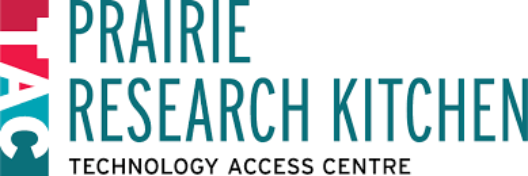4
Indigenous Engagement

Indigenous peoples are significantly underrepresented in many aspects of business, education, and training, including Manitoba’s food development sector. From its inception, Prairie Research Kitchen has been committed to bridging this gap by building Indigenous knowledge and engagement in food development opportunities and training.
Our commitment supports RRC Polytech’s strategic priorities aimed at embracing and reflecting First Nations, Métis and Inuit knowledge, cultures, and traditions in its mission.
RRC Polytech has actively taken on the responsibility of embedding the Truth and Reconciliation Commission of Canada’s Calls to Action. These include #92, which calls upon Canada’s corporate sector to commit to meaningful consultations and relationship-building with Indigenous peoples, ensuring Indigenous people have equitable access to jobs, training, and educational opportunities, and providing education for management and staff on the history of Indigenous peoples.
As a signatory to the Manitoba Collaborative Indigenous Education Blueprint, RRC Polytech has made a public pledge to advance Indigenous education and achievement in the province by supporting Indigenous student success, and by strengthening partnerships with Indigenous communities.
RRC Polytech’s current five-year strategic plan emphasizes elevating student success through solid experiential learning opportunities in partnership with employers. It commits us to radically increase the number of students involved in curriculum-based projects that focus on culinary research by students, guided by faculty, and driven by industry.
PRK fully recognizes the power and potential of the Indigenous community to be strong contributors to culinary innovation and economic prosperity.
We support Indigenous entrepreneurship by partnering our experienced faculty and research staff with Indigenous entrepreneurs, businesses, and community organizations to solve problems, develop opportunities, and create hands-on learning experiences for students.
PRK partners with RRC Polytech’s School of Indigenous Education (SIE) to prepare Indigenous students for careers in the food industry. The Culinary Skills program provides students with fundamental culinary skills and knowledge, including basic business skills – and, more importantly, content related to traditional foods and cooking methods. The program includes hands-on training, theory, and paid co-operative work placements in the culinary industry.
Like many culinary programs, our academic schedule affords very little classroom time for research-specific projects. PRK responded to this challenge by creating a three-day Introduction to Research student project during a break in classes. PRK has also worked with Indigenous Culinary Skills instructors Chef Joseph Alex and Chef Patrick Anderson on recipe development, wild rice milling, and employee training opportunities for Indigenous students.
In 2021, we began working with Indigenous Research Liaison Jamie Chahine to explore avenues for connecting Indigenous clients and students with the PRK for research collaborations, learning opportunities, and training. The strategic partnerships she has forged over the past year have created new opportunities for economic reconciliation and knowledge transfer – opportunities that will benefit communities, businesses, and industry.
Jamie also led the development in 2021 of the Indigenous Food Business Stories webinar, which combined food development and Indigenous storytelling to foster discussion and build relationships between community and economic development representatives, aspiring researchers, entrepreneurs, and Indigenous business leaders.
Our commitment to Truth and Reconciliation involves active participation from our staff. All PRK team members have completed the 4 Seasons of Reconciliation training. This program explores the truth of Canada’s history, as well as the intergenerational trauma and systemic barriers that resulted from it. PRK staff have also participated in the Blanket Exercise, a guided simulation of the colonization of Canada from the original treaties to the residential schools to today. In the kitchen, we work with Indigenous staff and students to encourage and support inclusion of traditional practices and ceremonies into our daily work. Our team actively participates in Indigenous cultural events hosted throughout the RRC Polytech community.
This chapter brings together projects we have worked on featuring Indigenous foods, businesses and projects involving the chefs and students from SIE’s Culinary Skills program.
Indigenous Food Stories:

Growing Your Indigenous
Food Business:





